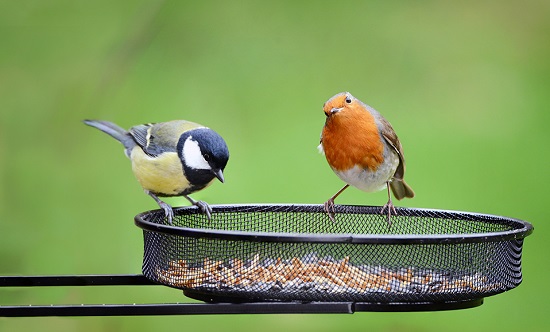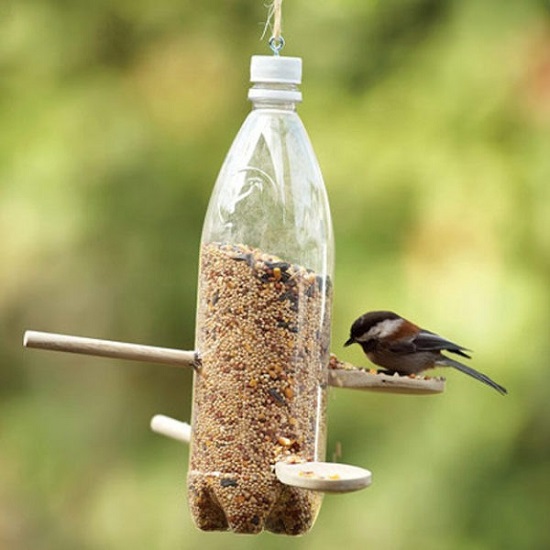Cod liver oil has many benefits for humans. But is it beneficial for birds too? Read on find out benefits and use of cod liver oil for birds.

What is cod liver oil?
Cod liver oil is extracted mostly from the liver of the Atlantic Codfish. It is used as a dietary supplement as it contains essential vitamins and fatty acids, which promote health. It contains omega 3 fatty acids, vitamin A, and vitamin D.
Nutritional profile
1 teaspoon contains:
Energy : 41 calories
Vitamin A : 4500 IU
Vitamin D : 450 IU
Cholesterol : 26mg
How do birds benefit from cod liver oil?
All birds, animals, and humans need fatty acids for the proper functioning of their body systems. A proper balance of omega 3 and omega 6 fatty acids is essential to ward off disease and boost disease-fighting immune capacity. Pet birds need balanced nutrition, or they can quickly become sick and die.
Vitamin A deficiency in pure ‘seed diet’ fed birds
- Birds fed with an all-seed diet often suffer from vitamin A deficiency as most seeds do not contain this vitamin. The deficiency weakens the bird’s immune system, and they can be plagued by bacterial, fungal, and viral infections. It also leads to unhealthy structural changes in their cells, which leads to further diseases. Cod liver oil is a good vitamin A source that boosts bird immunity, maintains healthy eyes and vision, promotes wound healing, and keeps their feathers vibrant and healthy.
Fatty acids
- EPA and DHA are the types of omega 3 fatty acids that make up the solid matter in brains, so they are essential for brain development in young birds. They also promote the healthy functioning of their brain.
- Caged birds or pet birds can suffer from arteriosclerosis due to their fat-rich diets and lack of exercise. Omega 3 fatty acids are anti-inflammatory and protect blood vessels and prevent the buildup of plaque within them. Omega 3 fatty acids promote skin health, increase vitamin and mineral absorption in the body, and boost immunity. They help regulate blood sugar levels, protect joints and treat rheumatoid arthritis.
Vitamin D
- Birds produce vitamin D when sunlight falls on their skin. However, your pet bird or caged birds have no sun exposure to direct vitamin D. Also, suppose your bird’s diet is only plant products or all seeds. They will suffer vitamin D deficiency as they cannot use plant form of vitamin D. The form of vitamin D that they can absorb is vitamin D3 or cholecalciferol, which is found only in animal products like eggs, milk, insects, and liver. Cod liver oil is rich in vitamin D, required for the proper absorption and utilization of calcium and phosphorous in the bird’s body. It promotes normal growth, healthy bones, and eggshell formation in birds. This vitamin deficiency can cause birds to produce thin-shelled eggs, suffer from rickets, and soften their beak, claws, and ribs.
How much and how to add to your bird’s diet?

One teaspoon in 500gms of seed. Mix, let soak overnight, covered and then feed it to your pet birds. Make sure they consume the seeds quickly before it turns rancid.
Precautions and risks
All fishes, including the cod, may be contaminated with environmental toxins such as mercury and dioxins in the ocean water. Though the refining process used to extract the oil from the liver helps reduce the risk from toxins, it is prudent to procure the oil from a reputed source.
Too much vitamin D may cause weight loss and irregular heart rhythms. It may also cause an excess of calcium in the blood, resulting in the calcification of tissues and blood vessels, and kidney stones. Consult your veterinarian before adding cod liver oil to your bird’s diet and stick to the prescribed dosage.
The oil becomes rancid very quickly on exposure to air; hence, store properly and feed your bird as soon as possible. The vitamin A content is also lost when cod liver oil is exposed to air. Moreover, overconsumption can lead to vitamin A and vitamin D toxicity.
